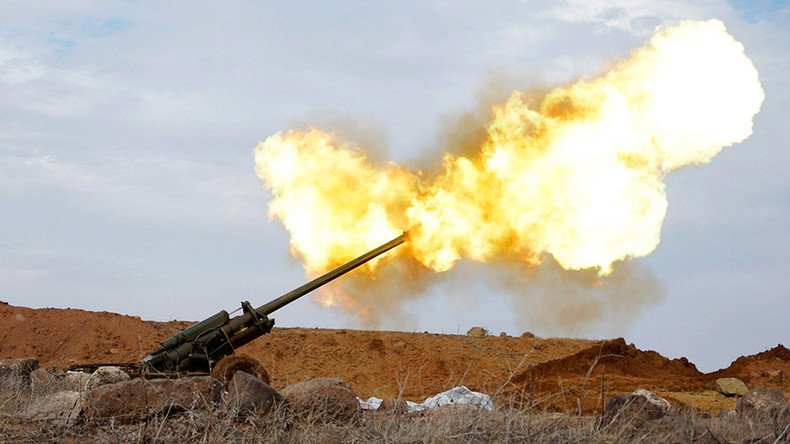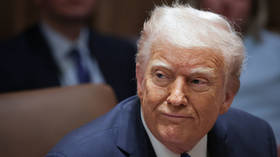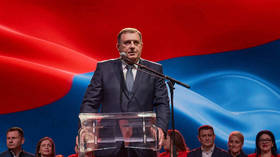US, France urge Turkey to stop shelling Kurds in northern Syria

Washington and Paris have called on Turkey to cease its massive artillery bombardment against Kurdish targets near the city of Azaz in northwest Syria, including an air base recently retaken from Islamist rebels, and to de-escalate tensions on all sides.
“We are concerned about the situation north of Aleppo and are working to deescalate tensions on all sides,” State Department spokesman John Kirby said in a statement Saturday.
“We have also seen reports of artillery fire from the Turkish side of the border and urged Turkey to cease such fire,” he said.
UPDATE: Turkish military shells Assad forces, Kurdish militias in northern #Syria - reports https://t.co/9G969DY4tdpic.twitter.com/DwWXE2V1Ar
— RT (@RT_com) February 13, 2016
France also joined the US calls, with the country’s Foreign Ministry urging Turkey to halt the bombardment of Kurdish areas in Syria.
"France is worried about the deteriorating situation in the region of Aleppo and the north of Syria. We call for the cessation of all bombardments, those of the regime and its allies on the entire territory and those of Turkey in the Kurdish zones," Paris said in a statement.
The priority should be the fight against Islamic State and the implementation of agreements reached by the International Syria Support Group (Russia, US and UN) in Munich earlier this week, it added.
Turkish Prime Minister Ahmet Davutoglu told German Chancellor Angela Merkel by phone later on Sunday that Turkey’s security forces will to continue to respond to attacks by the Kurdish YPG militia in northern Syria, sources in the PM’s office told Reuters.
Turkish armed forces began heavy artillery fire earlier Saturday, targeting Kurdish positions in what Turkish military officials called a "retaliation." The shelling also targeted Syrian forces, according to a military source quoted by RIA Novosti.
The Turkish shelling of Kurdish positions continued for over three hours almost without a break, a Kurdish source told RT. The source added that the Turkish forces were using mortars and missiles and firing from the Turkish border not far from the city of Azaz in the Aleppo Governorate.
The shelling targeted the Menagh military air base and the nearby village of Maranaz, where “many civilians were wounded,” local journalist Barzan Iso told RT. He added that Kurdish forces and their allies among “the Syrian democratic forces” had taken control of the air base Thursday.
Kirby said Turkey and the Syrian Kurdish fighters should work together, as they both share a serious threat from Islamic State (IS, formerly ISIS/ISIL) in northern Syria.
He said that Washington does not consider the Syrian Kurds terrorists. The comment prompted anger in Ankara. Turkey's Foreign Ministry summoned the US ambassador John Bass on Tuesday, expressing its “unease,” AFP reported.
Readout of @VP Biden’s Call with Prime Minister @Ahmet_Davutoğlu of #Turkeypic.twitter.com/yoAWjKfaR6
— US Embassy Turkey (@USEmbassyTurkey) February 14, 2016
Turkish Sunday’s Zaman newspaper pointed out that Ankara’s interference in Syria would lead to the country being at “odds with not only Russia, but its close ally, the US, as well.”
According to the paper, US Ambassador Bass asked Turkish officials not to publicly bring up the differences between Washington and Ankara concerning the PYD, stressing that the American stance on the Kurdish fighters would remain unchanged.
Turkish push to depose Syrian President Bashar Assad is also adding to tensions with Washington as an unnamed Western diplomat told Sunday's Zaman that the US and Russia have agreed to keep Assad in power for some time.
Despite knowing that Assad isn’t the best choice, the US understands now that he’s not the worst choice, the diplomat explained.













